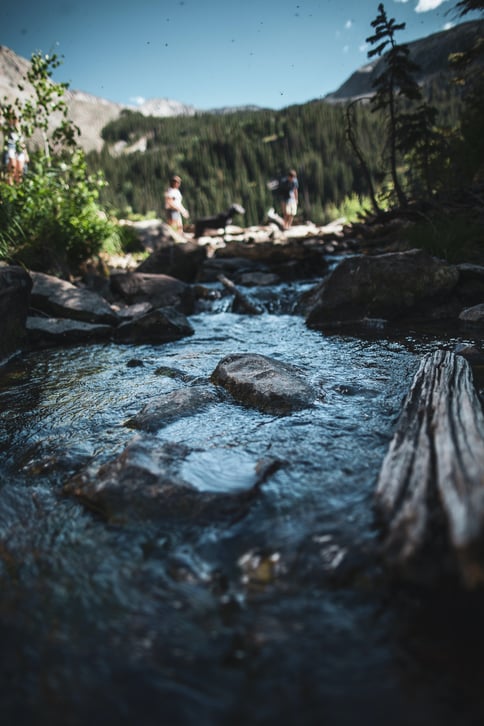Every Coloradoan knows that water is a limited and critical resource in our state. And while the rivers are running high this time of year, planning ahead and conserving water now is critical. We’ve seen the results of a drying climate in our communities, most prevalently in the form of increasingly frequent and devastating wildfire activity in recent years. You may have seen the news too regarding the low water levels in the Colorado River Basin, of which Eagle County is a part of. Actions towards water conservation, whether individually or collectively as a community, are impactful. Together we can take small but concrete steps to conserve water and make a difference. 
The Colorado Water Conservation Board indicates that the population in Colorado is rapidly increasing and projected to double from 5.4 million to over 10 million people by 2050. In contrast, water resources are dwindling at a faster rate, and this is largely attributed to the effects of climate change (e.g., persistent droughts and associated high temperatures). According to the Environmental Protection Agency (EPA), water conservation is key to reducing the ecological footprint. There are many ways of conserving water on a personal level, including taking shorter showers, using water-efficient taps, showerheads and harvesting rainwater. And while reducing personal water usage won’t solve all our problems, it really does add up!
Tips to reduce water usage:
- Calculate your water usage: Knowing what you use can help to identify opportunities for reduction. There are easy online tools like the Water Calculator that can help you calculate how much water you use and where you can look to reduce.
- Focus on the bathroom: A huge percentage of indoor water is used in the bathroom, so conserving there is a great place to start. Shorter showers and turning off the tap when you’re not using it are easy wins. Take a look at your appliances and see if there are opportunities to switch to more efficient versions. Low-flow, water-saving showerheads help to reduce the volume of water that flows through your shower and save hot water (which saves you money!). The most efficient and sustainable showerheads release as little as 1.25 gallons per minute and are recommended for water conservation.
- Fill it up!: Wait to run the dishwasher and laundry machines until you have full loads to use those appliances most efficiently. Running the dishwasher only when full can save about 1,000 gallons of water per month, according to Colorado State University Extension (CSU). Adjust the settings if you can to match the water levels to the size of the load. If you’re considering an upgrade, look for high-efficiency appliances that typically use less water per load.
- Landscape Responsibly: Lawn watering is the biggest pull from municipal water supplies according to CSU. Make sure you know your plants and their needs well so you can avoid overwatering. Add mulch and compost where you can as these amendments help with water retention. When putting in new plants, look for native species that are better acclimated to our climate and can get by with less water. Make sure you’re watering according to the weather, too, even if you have an automatic irrigation system. Watering early in the morning or late in the evening reduces evaporation, and if it’s just rained, do you need to water right away?
- Advocate for water-smart policies: Water laws in Colorado can be complicated, but there are ongoing efforts to enact legislation that preserve water resources for the state and its watershed. Check out University of Colorado’s Western Water Policy Program for more resources and information.
- Bundle water efficiency with energy efficiency: What’s water efficient may also be energy efficient, and that can save you money! There are rebates available for appliance upgrades like heat pump clothes dryers and heat pump water heaters. Reach out to the Energy & Buildings Department at Walking Mountains to get a home energy assessment scheduled!
Simba Dupwa was a Sustainability Intern with Walking Mountains Science Center last summer.






